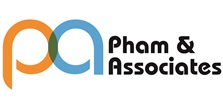CANADA: IP Office Uses AI to Tackle Trademark Application Backlog
The Canadian Intellectual Property Office (CIPO) has in recent years been facing a significant and growing backlog of national (as opposed to Madrid) applications. CIPO is well aware of this backlog and is taking steps to address it. One innovative project uses artificial intelligence (AI) to identify obvious deficiencies in the goods and/or services in all pending national applications.
The current time from filing to first examination for a newly filed national application exceeds three years. This contrasts with Madrid applications, which must be examined in 18 months. The primary reasons for this delay relate to the changes to the Trademarks Act, accession to the Madrid Protocol and the COVID-19 pandemic.
CIPO began testing this AI initiative as a pilot project on March 23, 2022. Full rollout is expected to take place from April to June 2022.
Under this initiative, CIPO plans to send letters to applicants letting them know that their goods/services descriptions or Nice classifications are deficient and inviting them to rectify the deficiencies (without actually identifying the deficiencies) so that their applications can be moved to a faster track of examination. For example, the letter may indicate that some of the claimed goods/services are not in CIPO’s Manual of Acceptable Goods and Services (the Pick List) and invite the applicant to voluntarily amend the application to be Pick List compliant. National applications that are Pick List compliant are currently being examined 14 months earlier than those that aren’t and that time to first examination is expected to improve going forward. There is also no necessity to respond to CIPO’s letter, as this is a voluntary step.
The AI initiative is intended to speed up the examination backlog by having applicants voluntarily amend their applications so as to avoid these types of common-place objections. It will not replace the normal examination procedure but is expected to result in fewer objections being issued for issues related to goods and services descriptions and Nice classes.
Another goal is to flush out applications where the applicants may have lost interest. It is hoped that once an AI-produced letter is received, an applicant that no longer wishes to pursue registration will voluntarily withdraw the application.
Source: https://www.inta.org/perspectives/canada-ip-office-uses-ai-to-tackle-trademark-application-backlog/


